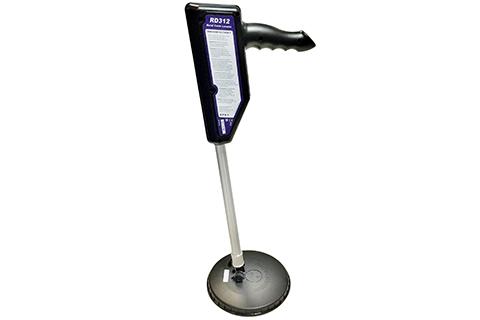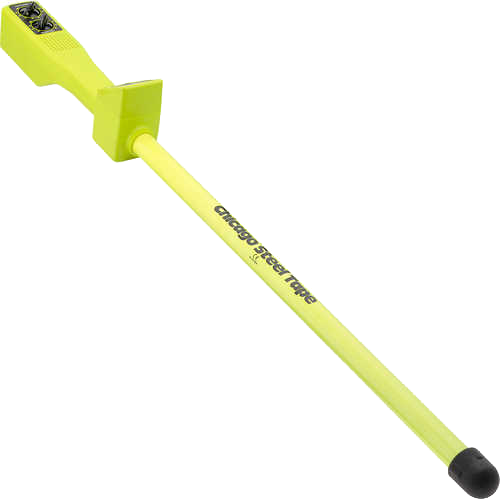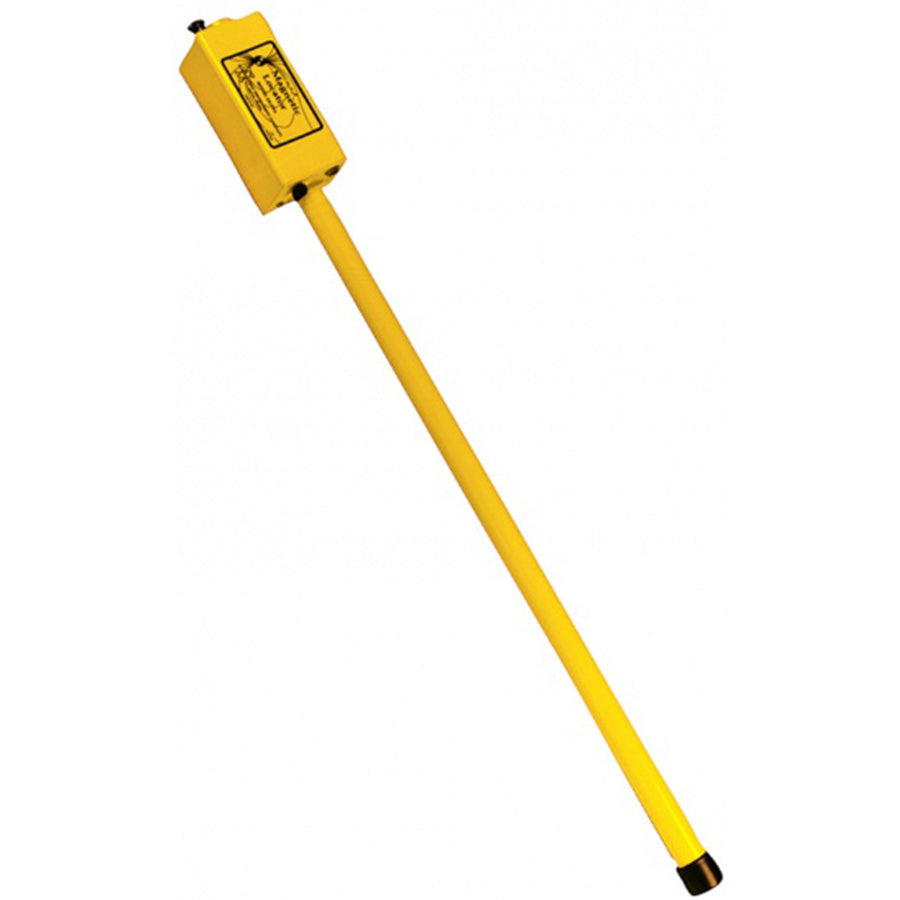Metal Detectors / Magnetic Locators
Precision Metal Detection: Professional Equipment for Every Task
Eastcom Associates, a premier dealer and distributor, delivers high-performance metal detectors and magnetic locators, engineered for professionals seeking precision and efficiency in their fieldwork. Our range of equipment, available through our dealership and distribution network, is tailored to support a wide array of applications, from construction and utility detection to archaeological surveys, ensuring superior detection capabilities where accuracy is paramount. With Eastcom, customers gain access to state-of-the-art tools designed for durability and ease of use, all offered at competitive pricing. As a trusted company in the industry, we are dedicated to providing professional-grade equipment that enhances operational success and safety. Explore our selection and discover how our metal detectors and magnetic locators can elevate the quality and effectiveness of your work.

Schonstedt GA-92XTd Magnetic Locator
Metal Detectors & Magnetic Locators: Technical Guide
Magnetic locators and conventional metal detectors both identify buried metal, but they work on different principles and serve different purposes. Magnetic locators sense distortions in the Earth’s magnetic field caused by ferrous (iron/steel) objects, while metal detectors generate an electromagnetic field and detect the response of any metal (ferrous or non-ferrous). The right choice depends on your target: use a magnetic locator to pinpoint iron/steel infrastructure, and a metal detector to find a broader range of metal objects.
Magnetic Locators vs. Metal Detectors
Magnetic locators are highly specialized, engineered to only react to ferrous targets such as steel pipes, cast-iron valve boxes, or survey pins. Metal detectors are more versatile, detecting both ferrous and non-ferrous metals such as copper, aluminum, brass, and gold.
- Detector Principle: Magnetic locators measure magnetic anomalies from ferrous materials, ignoring non-ferrous objects. Metal detectors transmit signals and detect induced currents in any conductive metal.
- Detectable Materials: Magnetic locators detect iron and steel only. Metal detectors detect all metals and often include discrimination settings to filter unwanted signals.
- Depth vs. Selectivity: Ferrous locators typically achieve greater depth on large iron objects, while metal detectors provide better sensitivity for smaller or non-ferrous targets.
- Cost and Complexity: Magnetic locators are rugged, professional tools with highly tuned sensors, while metal detectors range from simple, affordable units to advanced systems with discrimination, GPS, and data logging.
Comparison Table: Magnetic Locators vs. Metal Detectors
Core Use Cases
Both device types are used across industries, but each excels in different applications.
- Utility Locating: Magnetic locators excel at finding buried ferrous infrastructure such as valve boxes, manhole covers, and steel pipelines. All-metal detectors are better for copper tracer wires or aluminum cables.
- Construction & Infrastructure: Rebar, nails, and buried conduits can be located with either all-metal detectors or ferrous locators. Specialized models detect reinforcement in concrete or survey markers under pavement.
- Archaeology & Survey: Archaeologists use metal detectors for artifacts of all metals, while magnetometers and magnetic locators reveal buried ferrous structures or relics. Survey crews often rely on ferrous locators for pins and monuments.
- Military/UXO: Ferrous locators are used to detect unexploded ordnance and buried steel weapons, while advanced metal detectors locate mixed-metal fragments and non-ferrous casings.
- Municipal & Surveying: Cities use these tools to find paved-over valve covers, cast-iron manholes, and survey markers. Ferrous locators are especially effective for steel corner pins, while all-metal detectors identify any metallic markers.
Table: Applications vs. Typical Targets
Key Technical Features
Modern magnetic locators and metal detectors offer a range of technical features designed to improve accuracy, efficiency, and usability in the field.
- Depth Range: Magnetic locators can detect ferrous objects several feet deep, such as curb valves at 9 feet. Metal detectors’ depth depends on coil size and metal conductivity.
- Metal Discrimination: All-metal detectors allow operators to filter out unwanted targets. Magnetic locators inherently discriminate by only detecting ferrous metals.
- Sensitivity Control: Adjustable gain improves accuracy near fences, vehicles, or other interference.
- Signal Strength Indicators: Bar graphs, numeric readouts, or varying-pitch audio tones help operators pinpoint targets.
- Audio/Visual Alerts: All detectors provide audio tones, with some offering dual tones or visual feedback for target type and depth.
- GPS & Mapping: Higher-end locators may integrate GPS, enabling logging and mapping of underground finds.
- Data Logging: Some units record depth, frequency, and GPS data for compliance or mapping.
- Durability: Rugged, waterproof designs with battery runtimes of 10+ hours are common.
- Ground/Noise Rejection: Ground balance features filter out mineralized soil and interference for more stable readings.
Table: Performance Specs
Manufacturer Comparisons
Eastcom offers products from trusted brands specializing in both magnetic locators and metal detectors.
- Schonstedt: Industry standard for ferrous-only locators. Models like the GA-52Cx and GA-92XTd provide deep sensitivity, rugged housings, and patented dual-sensor technology. The Spot series offers lightweight, easy-to-use ferrous detection for surveyors and utilities.
- Pipehorn: Makers of the Maghorn ferrous locator, designed for deep iron/steel detection with sensitivity controls and automatic rejection of non-ferrous “trash.” Widely used in water, gas, and utility locating.
- Magnawand: Known for the ID2100X, a ferrous locator capable of pinpointing valves and curb stops up to 9 feet deep, with advanced target identification features.
- Fisher: Leading supplier of all-metal detectors such as the M-97 and M-66 for locating valves, boxes, manholes, and survey markers. Models like the M-101 are specialized for rebar, studs, and nails in construction.
- Spot (Schonstedt): Lightweight, ergonomic ferrous-only detectors for locating deep survey pins, nails, and valve covers. Durable, water-resistant, and optimized for field use.
Table: Brand Highlights
Choosing the Right Solution
The right tool depends on your target materials and application. For steel pipes, valve covers, survey pins, or UXO, a magnetic locator provides unmatched ferrous sensitivity while ignoring clutter. For locating all types of buried metal, including copper tracer wires, coins, or mixed targets, a metal detector offers broader coverage and discrimination features.
Why Eastcom?
Eastcom Associates partners with leading manufacturers to provide both magnetic locators and all-metal detectors for utilities, construction, municipalities, and field survey professionals. Our team can help you evaluate depth requirements, metal discrimination needs, and durability specifications to ensure you select the best equipment for your application.







